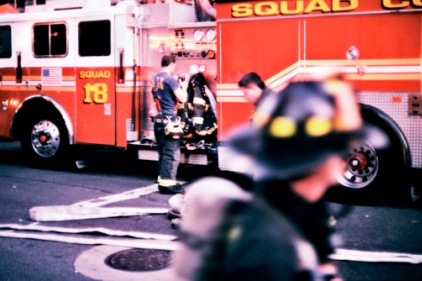 Police officers and firefighters who are relatively new to the job run the risk of experiencing mental health problems from being exposed to disturbing events, a new study finds. Those with more time on the job show no such increased risk.
Police officers and firefighters who are relatively new to the job run the risk of experiencing mental health problems from being exposed to disturbing events, a new study finds. Those with more time on the job show no such increased risk.
The researchers from the Johns Hopkins Bloomberg School of Public Health in Baltimore also found that police, firefighters and other protective services workers do not have higher rates of mental health problems than people in other occupations.
For the study, the researchers analyzed data from the U.S. National Epidemiologic Survey on Alcohol and Related Conditions to compare rates of mental health problems, such as mood, anxiety and alcohol use disorders, among different groups of workers. The findings appear in the February issue of the journal Disaster Medicine and Public Health Preparedness.
The most common types of traumatic events reported by protective services workers included: seeing someone badly injured or killed; unexpectedly seeing a dead body; having someone close die unexpectedly; and having someone close experience a serious or life-threatening illness, accident or injury.
The association between witnessing traumatic events and having mental health issues was "virtually confined to the group of early-career protective services workers," study senior author Dr. Ramin Mojtabai, an associate professor in the department of mental health, said in a Bloomberg school news release.
"Future research should examine the coping skills of protective services workers who have been in these jobs for many years, which might make them less likely to develop psychiatric complications in the face of various potentially traumatic experiences," Mojtabai added.
The researchers also said special support programs and services for newly hired protective services workers can potentially help prevent mental health problems that might cause them to leave their jobs.
SOURCE: Johns Hopkins Bloomberg School of Public Health, news release, Feb. 26, 2013



